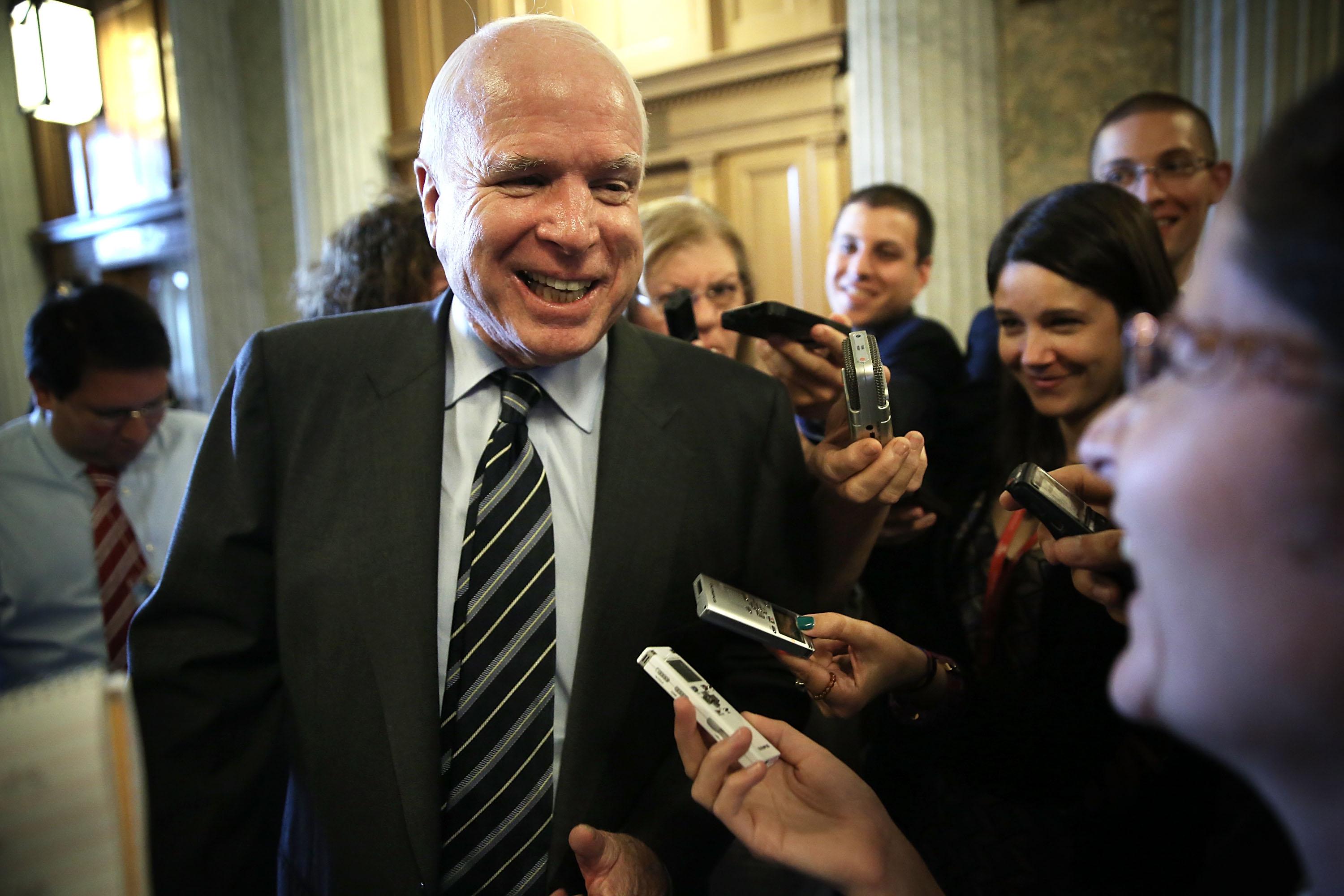’Tis the season for the sympathetic liberal interview of Sen. John McCain. A week ago Dana Milbank “strolled with McCain in the Russell building and sat in his office,” discovering that “the Mac is Back.” For those of us versed in Milbankia, this was a sea change—for three years, Milbank had mourned “the McCain I sat with on a flight from San Diego to Phoenix back in 1999,” the funny one who criticized his own party. I don’t think Isaac Chotiner was ever on a pro-McCain kick, but his interview with the guy reflects a real admiration for and curiosity in the Maverick’s role in our ridiculous politics.
The interviews came around a week apart, and the only inconsistencies from McCain come when he’s explaining some “conservative” position he still holds. Milbank left with the impression that McCain”thought it his duty as the party’s former nominee to wage ‘a bitter fight’ against Obamacare.” Chotiner gets a slightly different, more aggressive answer on Obamacare: “Yes, I fought ferociously to stop it, but I am not embarrassed about it. I am proud of it, because I think it’s obvious Obamacare is becoming a failure.”
What’s consistent across the interviews is a hard critique of the GOP’s newcomers on the right. In Milbank:
“There’s a view,” he said, “that a reason for coming here is not to get something done but to prevent anything from getting done.” He cited the standoff on a budget resolution: Republicans beat up on Senate Democrats for years for failing to pass a budget, and now that the Senate has finally passed a budget, Republicans are objecting to the Senate naming conferees to negotiate a budget with the House.
He says the same to Chotiner, but goes deeper.
IC: It seems to me that the GOP leadership has been frozen by Rand Paul and Ted Cruz.
JM: I am not sure if it has been frozen, but certainly there is an element in the party that has been there prior to [World War II], the isolationist, America-Firsters. Prior to World War I, it was Western senators, and then Henry Ford and Charles Lindbergh, and then Taft versus Eisenhower. Even Reagan—Reagan’s presidency was perfect without ever a problem [said sarcastically]—there was an isolationist wing that fought against Reagan. And now the bad economy has exacerbated what has always been out there.
IC: Do you think this wing has changed the comity in the Senate? There were the attacks on Hagel. Do these things concern you?
JM: Oh yeah. It’s of concern. But it’s important for me to be respectful. After I called them wacko birds, I apologized. I try and be respectful but also go out there and debate them every chance I get. Small example: For four years, Harry Reid—and I beat him up regularly—wouldn’t bring a budget to the Senate. This year, we brought one, stayed up all night. We were so proud, we passed a budget resolution—most of it nonsense—but guess what? Now we have the same group who are blocking going to conference. The same group sometimes doesn’t want to take up a bill and at other times blocks a bill because they can’t get all the amendments they want.
So that’s how the Cruz wing of the party lost McCain. He doesn’t consider them realistic, and he doesn’t consider them strategic. The only policy difference he cites is “isolationism”—apart from that, you see he’s frustrated that the new guys won’t cut a deal that lets Republicans get some of what they want. I imagine the conservative media will enjoy a hearty “LOL” over McCain’s theories, but they should look at what hard-core opposition has gotten them so far this year.
